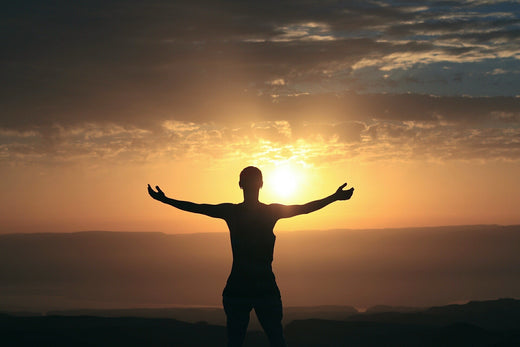Article: 10 Ways to Calm Anxiety

10 Ways to Calm Anxiety
Anxiety is a complex and multifaceted emotional and physiological response to perceived or anticipated threats, commonly identified as stressors. This response manifests through various cognitive, emotional, behavioral, and physical symptoms.
There is no doubt that anxiety serves a real function as a natural and adaptive reaction, preparing us to face challenges. However, when anxiety becomes chronic or disproportionate to the actual threat, it can develop into anxiety disorders. These are characterized by excessive and irrational worry and fear, along with a range of physical and psychological symptoms that can significantly impair daily functioning and overall well-being.
While there is no universal treatment for anxiety—since each individual experiences it differently—many holistic approaches can help manage anxiety, including dietary and lifestyle modifications, as well as additional support through nutritional and/or herbal medicine when indicated.
Common Symptoms of Anxiety
Each person experiences anxiety uniquely, but some common physical, psychological, and behavioral manifestations include:
- Panic attacks
- Increased heart rate/respiration
- Excessive and/or obsessive thoughts and worries
- Restlessness/Irritability
- Fatigue
- Low or fluctuating mood
- Digestive issues such as altered bowel habits or bloating
- Difficulty concentrating, poor memory
- Intensified emotions
- Low resilience to stress
- Addictive or obsessive tendencies
- Substance dependence/abuse
- Disturbed sleep quality
Experiencing anxiety regularly can be debilitating and overwhelming, so making small changes for our mind, body, and spirit can help us navigate these daily challenges more effectively.
10 Ways to Calm Anxiety
-
Identify your triggers and behaviors to avoid. From there, personalize your anxiety by giving it a name, image, and/or color. This helps separate yourself from anxious feelings, allowing for greater control rather than self-blame or over-identification with anxiety.
-
Practice mindfulness in both relaxation and active forms. Relaxation-based mindfulness includes meditation, breathwork, or deep breathing exercises. Active mindfulness can involve nature walks, yoga or Pilates, sea swimming, singing, dancing, or painting.
-
Be mindful of how you nourish your body. Substances like caffeine, stimulants, sugar, alcohol, certain medications, and dehydration can worsen anxiety in many individuals. A holistic approach addresses the gut-brain connection, promoting gut healing through diet, supplementation, and/or herbal support if necessary.
-
Incorporate gut-healing foods such as prebiotics and probiotics, slippery elm, glutamine, bone broth, collagen, warming foods, aloe vera, and anti-inflammatory foods.
-
Magnesium glycinate is a wonder mineral for anxiety! To replenish this essential mineral, incorporate Epsom salt baths into your weekly routine, try float therapy, use magnesium sprays topically, and consume magnesium-rich foods like spinach, pumpkin seeds, tuna, brown rice, almonds, dark chocolate, avocado, and bananas, or supplement under professional guidance.
-
Pay attention to blood sugar balance. Inadequate protein intake, lack of physical activity, skipping meals, and intense or excessive workouts can disrupt blood sugar regulation, worsening irritability, anxiety, and stress. Ensure you consume high-quality protein at each meal/snack, engage in movement for at least 10 minutes after eating, choose fiber-rich foods, stay hydrated, and practice stress management techniques.
-
Engage in body-centered practices such as yoga, tai chi, controlled deep breathing, singing/playing instruments, vagus nerve stimulation exercises, grounding techniques, or barefoot nature walks. These are all effective ways to manage anxiety.
-
Connect with your local community to build a safe and supportive network, prioritizing quality time with loved ones while disconnecting from social media.
-
Immerse yourself in nature daily. Ground yourself by walking barefoot on the earth.
-
Connect with yourself through empowering rituals.
Conclusion
Anxiety can be a debilitating and isolating experience for many. By adopting a holistic approach that addresses all aspects—mind, body, and spirit—we can equip ourselves with a wealth of tools to help manage these feelings, improve self-esteem, boost confidence, and enhance overall quality of life.




